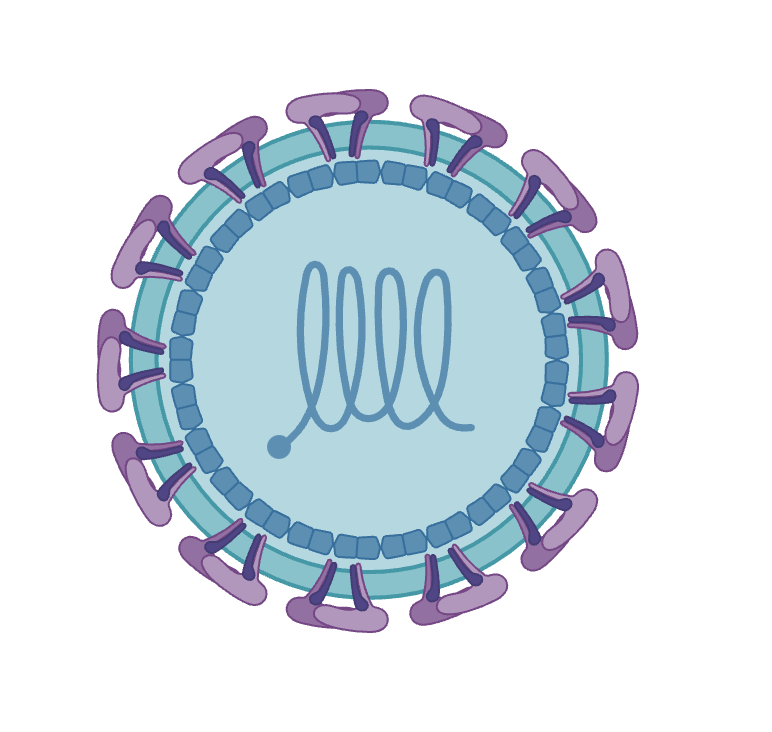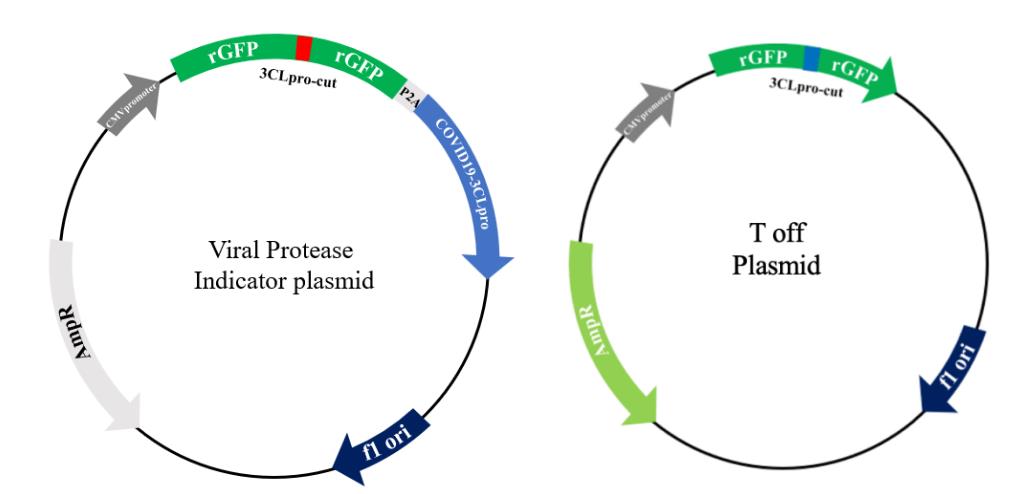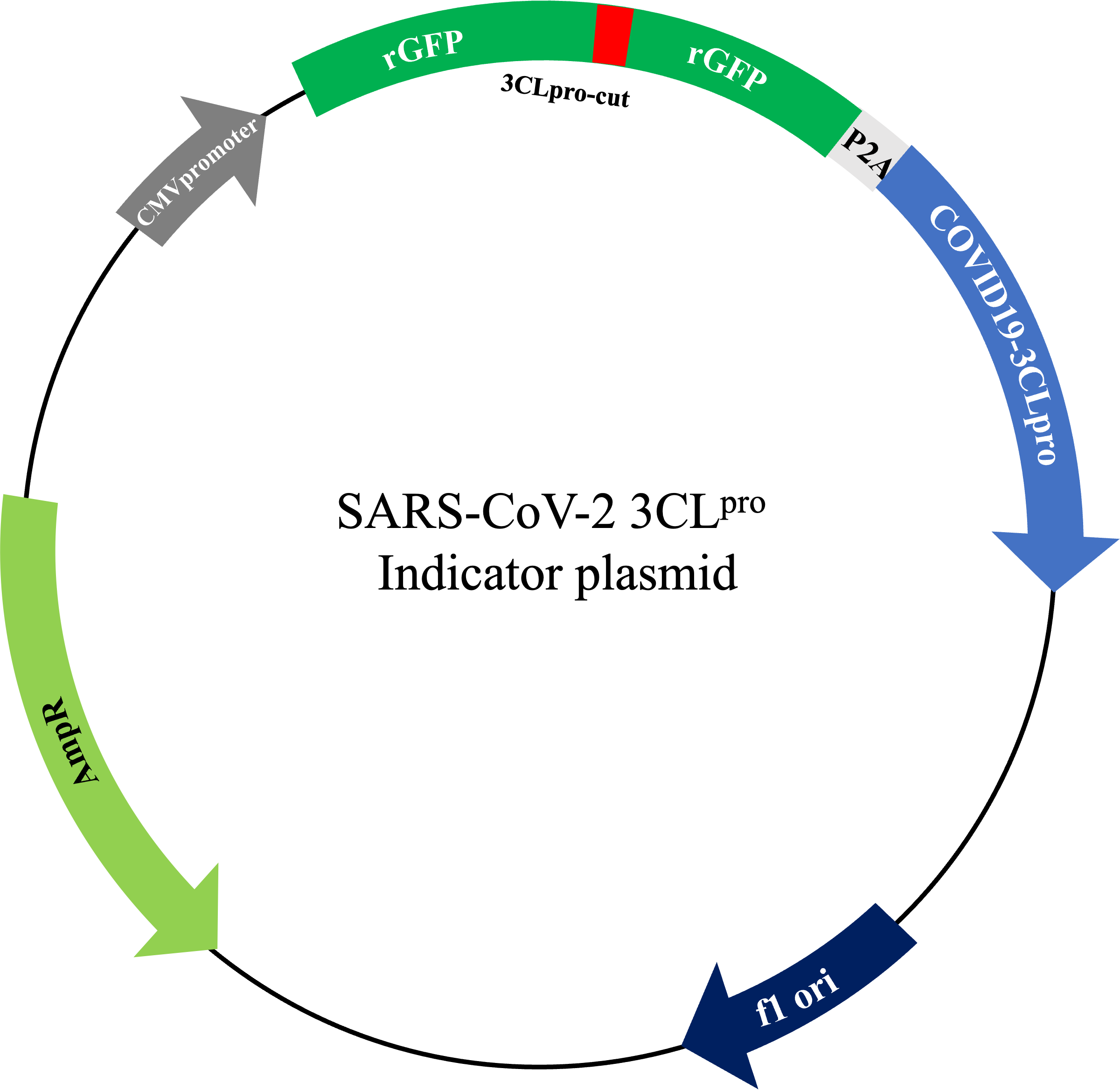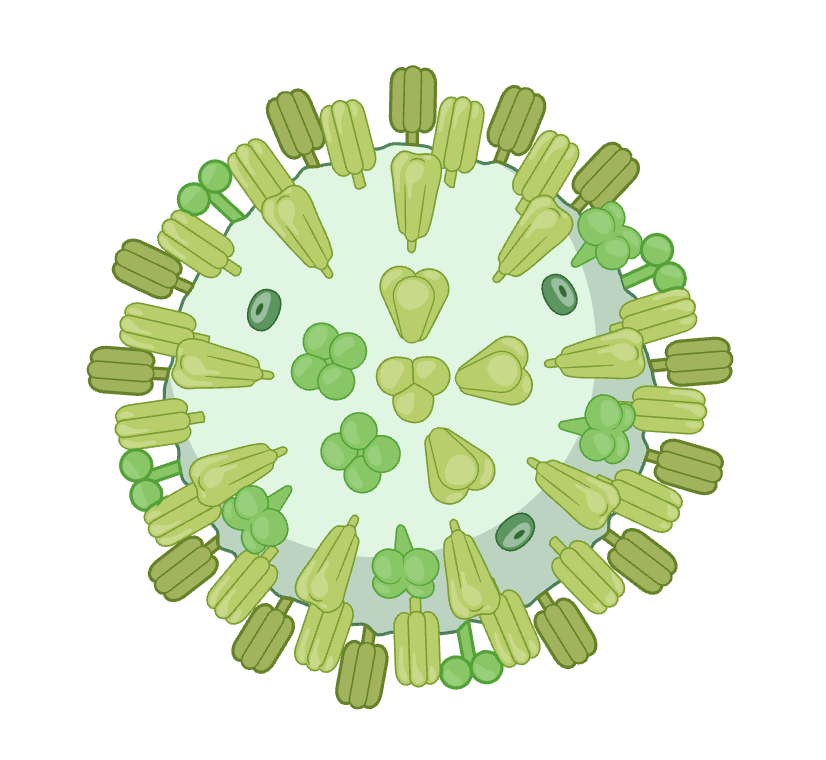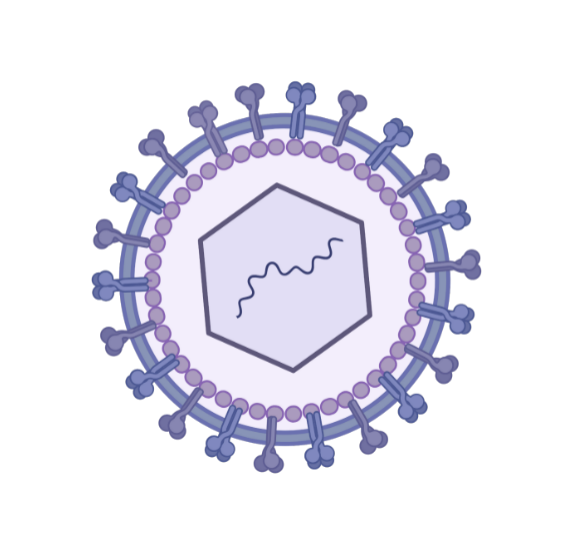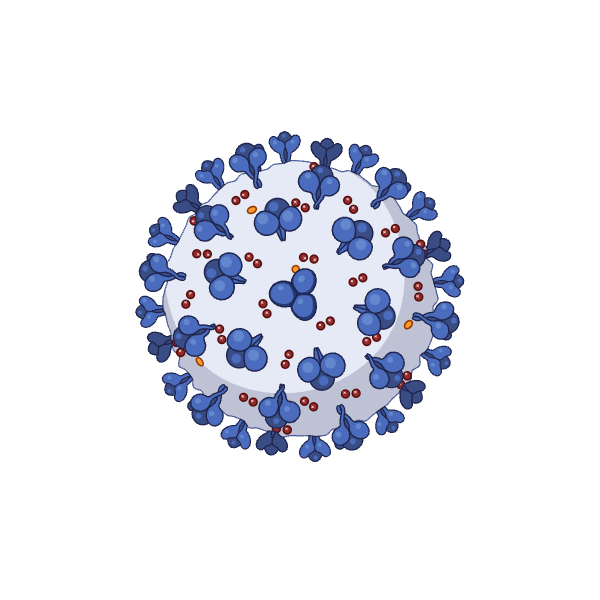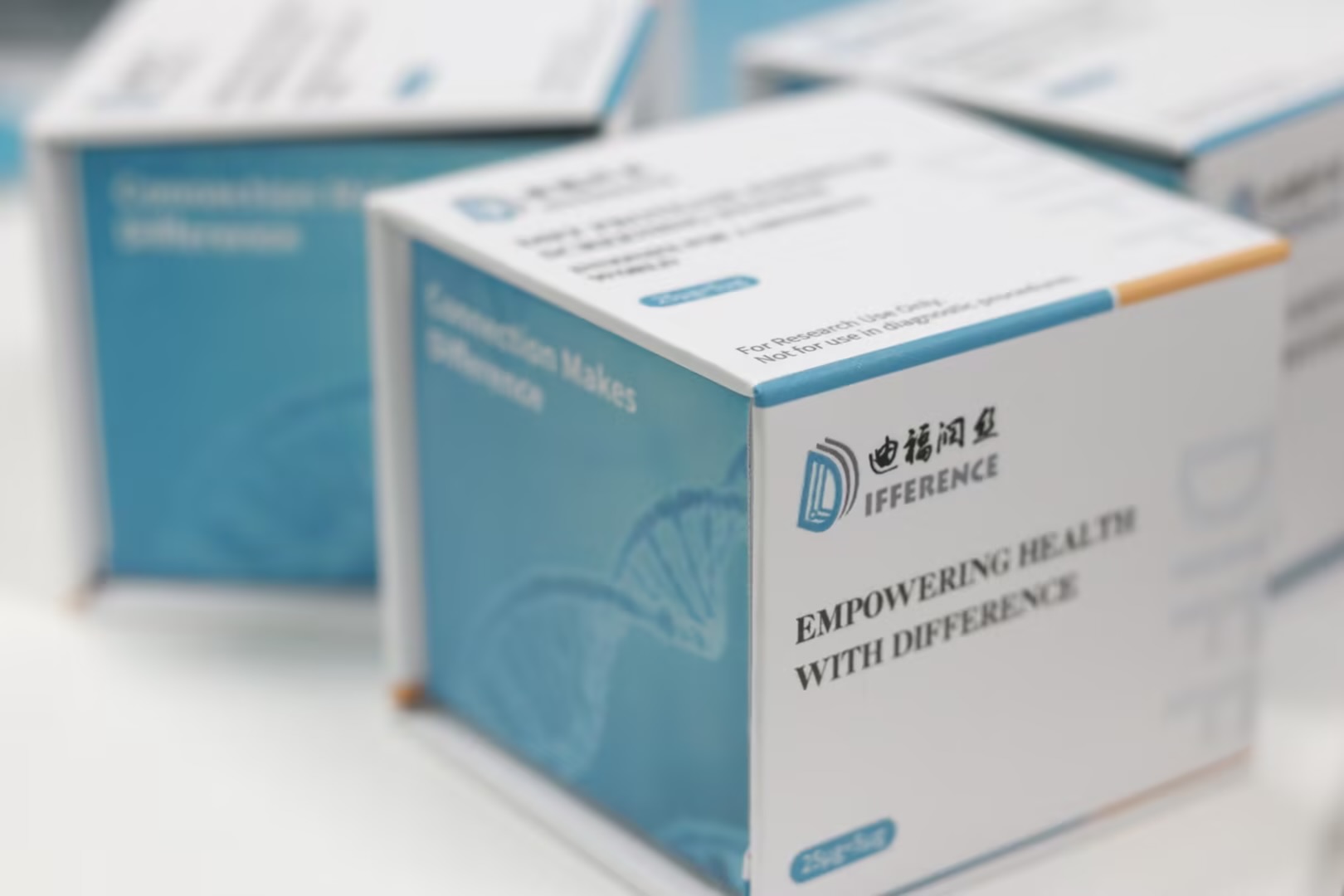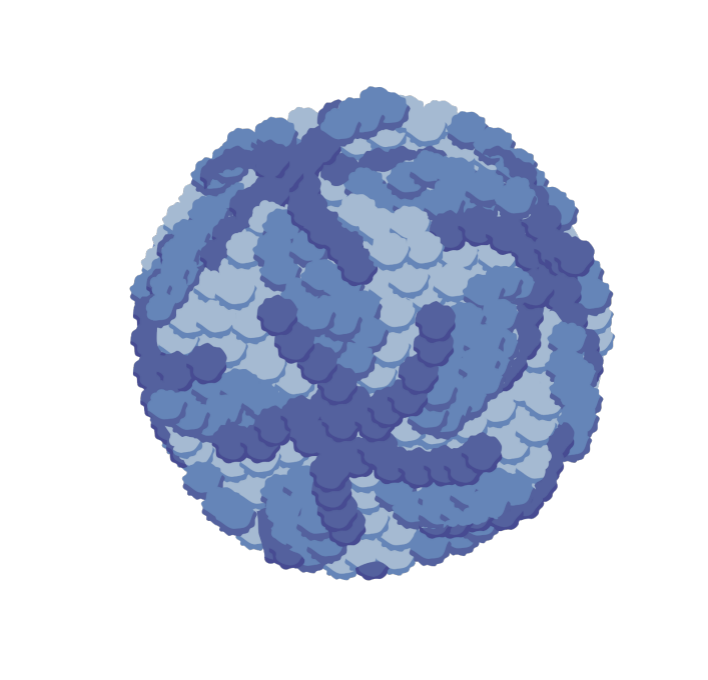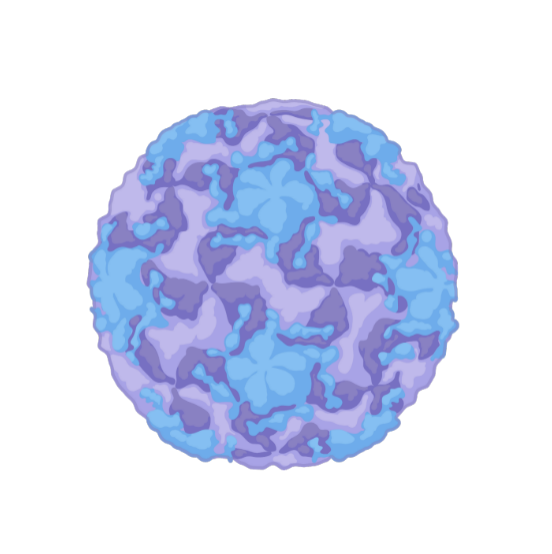Screening of 10 commonly used antiviral drugs
In the process of screening antiviral drugs, although it is not possible to directly list the entire screening process of “10 commonly used antiviral drugs”, I can introduce the 10 commonly used antiviral drugs and the key points that may be involved in their screening. Please note that the screening of these drugs typically involves…
Read moreHow to screen antiviral drugs?
Antiviral drug screening is a systematic project aimed at discovering drugs that can effectively inhibit virus replication, alleviate virus symptoms, or prevent virus transmission. The following is a general antiviral drug screening process: 1、 Determine screening targets and criteria Screening objective: Based on the severity of the disease, the characteristics of the virus, and market…
Read moreHow to screen antiviral drugs?
Antiviral drug screening is a complex and systematic process that involves multiple steps and critical links. The following is a general antiviral drug screening process: 1、 Preliminary preparation Determine screening targets: Based on the severity of the disease, the characteristics of the virus, and market demand, identify the types of antiviral drugs that need to…
Read more7 steps for screening antiviral drugs
Antiviral drug screening is a complex and systematic process aimed at discovering compounds with antiviral activity, providing a foundation for drug development. The following are seven key steps in antiviral drug screening: 1. Determine the screening target and virus model Screening objective: Based on the severity of the disease, the characteristics of the virus, and…
Read more5 key factors in antiviral drug screening
The 5 key factors for antiviral drug screening include: 1. Clarity of target virus and target Understanding virus characteristics: Gain a deep understanding of the biological characteristics, replication cycle, and key pathogenic mechanisms of the target virus, and identify the virus targets that drugs need to target. Target validation: Verify the effectiveness and pharmacological properties…
Read moreCommon misconceptions in protease inhibitor screening
There are some common misconceptions in the screening process of protease inhibitors, which may affect the accuracy and efficiency of the screening results. Here are some main misconceptions: 1. Neglecting the clarity of screening targets Misconception description: Before the screening begins, there is no clear definition of the target compound type, required inhibitory effect, and…
Read moreWhat are the main techniques used in protease inhibitor screening?
The main techniques used in protease inhibitor screening are diverse, aimed at efficiently and accurately identifying compounds that can inhibit protease activity. Here are some commonly used technical methods: Which company is good for protease inhibitors? High throughput screening (HTS): High throughput screening is a fast and automated screening technique that can simultaneously perform activity…
Read moreBest practices for screening antiviral drugs
The best practices for antiviral drug screening involve multiple aspects, including experimental design, screening methods, data analysis, and subsequent validation. Here are some key steps and precautions: one、 Clearly define screening objectives and criteria 1. Determine screening targets: Based on factors such as the severity of the disease, the characteristics of the virus, and market…
Read moreWhat is the importance of antiviral drug screening?
The importance of antiviral drug screening is self-evident, as it has profound implications for global public health safety, disease prevention and treatment, as well as scientific research and technological innovation. Specifically, its importance is mainly reflected in the following aspects: 1、 Disease prevention and treatment Effective inhibition of virus replication: Antiviral drugs interfere with the…
Read moreNew Trends in Antiviral Drug Screening
The new trends in antiviral drug screening are mainly reflected in the following aspects: 1、 Technological Innovation and Intelligence High throughput screening technology: High throughput screening technology can screen a large number of compounds for antiviral activity at once, significantly improving screening efficiency. In the future, with the further upgrading of automation equipment and data…
Read moreWhat are the common challenges in antiviral drug screening?
The common challenges in antiviral drug screening mainly include the following aspects: 1、 Strong virus variability Viruses have a high degree of variability, which means they can quickly alter their genetic material to evade the inhibitory effects of existing drugs. This mutation ability poses great uncertainty in the development of antiviral drugs, as even if…
Read moreWhat is the importance of antiviral drug screening?
The importance of antiviral drug screening is self-evident, as it directly relates to human health and social stability. The following elaborates on its importance from multiple aspects: 1、 Disease prevention and treatment Effective inhibition of virus replication: Antiviral drugs interfere with the lifecycle of the virus, such as preventing it from entering cells and inhibiting…
Read moreThe latest trend in antiviral drug screening
The latest trends in antiviral drug screening are mainly reflected in the following aspects: one、 Technological innovation and integration 1. High throughput screening technology: With the development of technology, high-throughput screening (HTS) technology has become an important means of screening antiviral drugs. This technology can screen a large number of compounds in a short period…
Read moreKey points of antiviral drug screening
The key points of antiviral drug screening mainly include the following aspects: 1、 Clearly define screening objectives and criteria Determine screening targets: Based on factors such as the severity of the disease, the characteristics of the virus, and market demand, identify the types of antiviral drugs that need to be screened. Develop screening criteria: Establish…
Read more7 common errors in antiviral drug screening
In the process of screening antiviral drugs, there are indeed some common errors that may affect the accuracy and effectiveness of the screening results. Here are seven common screening errors for antiviral drugs: 1. Lack of clear screening objectives and criteria: Before starting the screening, there was no clear definition of the target compound types,…
Read moreFive commonly used methods for testing protease inhibitors
The five commonly used protease inhibitor testing methods include but are not limited to the following, which are widely used in biochemical and molecular biology research to evaluate the efficacy and specificity of protease inhibitors: 1. Enzyme catalyzed reaction inhibition experiment Principle: Evaluate the effectiveness of inhibitors by measuring the catalytic activity changes of proteases…
Read moreWhat are the common challenges in screening antiviral drugs?
https://shop.diff-biotech.com/Antiviral drug screening is a complex and challenging process that involves multiple considerations. Here are some common challenges: 1. Strong virus variability Challenge description: Viruses have a high degree of variability, which means they can quickly alter their genetic material to evade the inhibitory effects of existing drugs. This mutation ability poses great uncertainty in…
Read moreHow to achieve high throughput in protease inhibitor screening?
High throughput in protease inhibitor screening mainly relies on advanced experimental techniques, automated equipment, and optimized screening processes. Here are some key steps and strategies for achieving high-throughput screening of protease inhibitors: 1. Choose the appropriate screening method High throughput screening technology: using automated liquid processing systems, multifunctional enzyme-linked immunosorbent assay (ELISA) and other high-throughput…
Read moreHow to screen protease inhibitors?
Screening protease inhibitors is a complex but crucial process that involves the comprehensive application of multiple steps and techniques. Here are some commonly used methods for screening protease inhibitors: 1. High throughput screening (HTS) High throughput screening is a rapid and large-scale method for evaluating the activity of a large number of compounds against specific…
Read more5 key steps in antiviral drug screening
Antiviral drug screening is a complex and sophisticated process aimed at discovering drugs that can effectively combat viruses. The following are five key steps in antiviral drug screening: 1. Determine screening targets and criteria Screening objective: Firstly, it is necessary to identify the types of antiviral drugs that need to be screened based on factors…
Read more10 commonly used methods for screening antiviral drugs
Antiviral drug screening is a crucial step in the drug development process, aimed at discovering drugs that can effectively inhibit virus replication, alleviate symptoms caused by the virus, or prevent virus transmission. Here are ten commonly used methods for screening antiviral drugs: Screening method based on virus proliferation inhibition: Principle: The antiviral activity of a…
Read moreFive Future Development Directions for Drug Discovery
The future development direction of drug discovery can be summarized as follows: 1. Precision medicine and personalized treatment With the continuous development of genomics, proteomics and other technologies, drug discovery will pay more attention to precision medicine and personalized treatment. Through in-depth analysis of patients’ genetic information, disease characteristics, and other data, scientists can design…
Read moreanti-viral drug screening
Antiviral drug screening is a complex and systematic process aimed at discovering drugs that can effectively inhibit virus replication, alleviate symptoms caused by the virus, or prevent virus transmission. The following is an overview of the screening process for antiviral drugs, including key steps, challenges, and solutions: 1、 The key steps in screening antiviral drugs…
Read moreCommon challenges and solutions in drug discovery process
Drug discovery is a complex and challenging process that involves the comprehensive application of multiple links and disciplinary knowledge. The following are common challenges and solutions in the process of drug discovery: one、 Common challenges 1. Scientific challenge: Drug discovery requires a deep understanding of the biological mechanisms of diseases and finding effective therapeutic targets.…
Read moreThree major factors that cannot be ignored in drug discovery
In the process of drug discovery, there are several factors that cannot be ignored, and they are crucial for driving the success of new drug development. Here are three factors that cannot be ignored: 1. Pharmaceutical chemical properties and biological activity The chemical properties of drugs: The chemical structure of drugs directly affects their pharmacological…
Read moreWhat are the key steps in screening antiviral drugs?
The key steps in screening antiviral drugs mainly include the following aspects: 1、 Target determination and virus model selection Determine screening targets: Based on factors such as the severity of the disease and the characteristics of the virus, identify the types of antiviral drugs that need to be screened and the types of viruses they…
Read moreThree common challenges in antiviral drug screening
There are various challenges in the screening process of antiviral drugs, and the following are three common challenges: 1. Strong virus variability Challenge description: Viruses have a high degree of variability, which means that their genetic sequences can undergo rapid changes. This variability may not only render existing antiviral drugs ineffective, but also generate new…
Read more8 effective strategies for screening antiviral drugs
Antiviral drug screening is a complex and systematic process that involves multiple stages and strategies. Here are eight effective strategies for screening antiviral drugs: 1. High throughput screening (HTS) Principle: By utilizing automated equipment and detection technology, a large number of compounds can be quickly screened in a short period of time to discover candidate…
Read moreWhat is the basic concept of drug discovery?
The basic concept of drug discovery refers to the process of researching and developing new drugs, which covers the entire process of starting from basic life science research, determining disease treatment targets, and finding and developing new drugs through a series of scientific means. This process involves multiple key steps and technical means. The following…
Read moreThe latest research progress in protease inhibitor screening
The latest research progress in protease inhibitor screening is reflected in multiple aspects, and the following is an overview of some key points: 1. Innovation in screening technology High throughput screening (HTS): HTS technology continues to develop, utilizing automated equipment and advanced detection techniques to quickly screen a large number of compounds in a short…
Read moreCommon problems and solutions in protease inhibitor screening
In the process of screening protease inhibitors, a series of common problems may be encountered, which involve multiple aspects such as experimental design, operational details, and data analysis. Here are some common problems and their solutions: one、 common problem 1. Unclear selection of target protease: Problem description: The specific type and characteristics of the target…
Read moreTen key factors for screening protease inhibitors
The top ten key factors for screening protease inhibitors involve multiple aspects, including the characteristics of the target protease, the activity and selectivity of the inhibitor, the selection of experimental methods, and the control of experimental conditions. The following is a detailed explanation of these key factors: Clarity of target protease: Firstly, it is necessary…
Read moreWhat about protease inhibitors?
Protease inhibitors are usually good and can achieve regulatory effects. This is a commonly used medication in daily life, which can generally be used to treat pneumothorax or traumatic injuries. It can also improve empyema and effectively alleviate various adverse symptoms such as chest tightness, shortness of breath, and difficulty breathing caused by pneumothorax or…
Read moreHow to evaluate the effectiveness of protease inhibitors?
Evaluating the effectiveness of protease inhibitors is a complex and systematic process that typically involves multiple considerations. Here are some key evaluation methods and steps: one、 In vitro experimental evaluation Enzyme activity inhibition experiment: Principle: Evaluate the inhibitory effect of inhibitors on proteases by measuring the enzyme activity changes in the presence or absence of…
Read moreThe Science and Art of Screening Protease Inhibitors
The process of screening protease inhibitors reflects both scientific rigor and artistic flexibility. It is not only an important technology in the fields of biochemistry and drug development, but also a model of the perfect combination of science and art. Scientificity Clear objective: The primary task of screening protease inhibitors is to identify the screening…
Read moreExploring innovative methods for screening protease inhibitors
Protease inhibitor screening is a crucial step in drug development, with innovative methods constantly emerging to improve screening efficiency, reduce costs, and discover inhibitors with higher activity and selectivity. Here are some innovative methods for exploring protease inhibitor screening: 1. The combination of high-throughput screening (HTS) and automation technology Technical principle: HTS utilizes automated equipment…
Read moreDiversity and complexity of protease inhibitor screening
The diversity and complexity of protease inhibitor screening are mainly reflected in the following aspects: Diversity Diversity of compound libraries: The compound libraries used in the screening process typically contain millions or even billions of different compounds, which exhibit diversity in structure, properties, and function. This diversity contributes to the discovery of protease inhibitors with…
Read moreFive effective screening techniques for protease inhibitors
Protease inhibitors play an important role in drug development, and their screening techniques are also diverse. Here are five effective protease inhibitor screening techniques: 1. High throughput screening (HTS) Principle: Rapid screening of a large number of compounds through automated equipment and detection instruments to find substances with protease inhibitory activity. Advantages: Able to process…
Read moreHow does drug discovery affect clinical treatment?
Drug discovery has a profound impact on clinical treatment, mainly reflected in the following aspects: 1、 Provide new treatment methods Drug discovery is the process of searching for new compounds with therapeutic or preventive effects on diseases. When a new drug is discovered and successfully developed, it often provides a completely new approach for clinical…
Read moreThe relationship between drug discovery and personalized medicine
Drug discovery is closely related to personalized medicine, jointly promoting the development of the medical and health field. Personalized medicine, also known as precision medicine, is a method of designing the best treatment plan for patients based on personal genomic information, combined with relevant internal environmental information such as proteomics and metabolomics. The purpose…
Read moreThe application prospects are broad! AI will become the ‘main force’ in the field of drug discovery
According to the Zhitong Finance APP, Lilly (LLY.US) has been using generative artificial intelligence to discover drug molecules. The data shows that the number of drug molecules discovered by artificial intelligence in five minutes is equivalent to the number of molecules synthesized by Eli Lilly in a traditional laboratory for a whole year, so testing…
Read moreThe Future of Drug Discovery: The Role of Artificial Intelligence
The Future of Drug Discovery: The Role of Artificial Intelligence The application of artificial intelligence in the field of drug discovery is undergoing revolutionary changes, and its role and function are increasingly prominent, bringing unprecedented opportunities and challenges to drug research and regulation. Firstly, artificial intelligence can quickly screen potential drug molecules through deep…
Read moreThe latest research progress in antiviral drug screening
The screening of antiviral drugs is an important research direction in the fields of medicine and biology. With the advancement of technology and the deepening of virology research, new research progress is constantly being made in this field. Here is an overview of the latest research progress in antiviral drug screening: one、 Discovery of new…
Read moreHow to screen the effectiveness of antiviral drugs?
The effectiveness of screening antiviral drugs is a complex and systematic process that involves multiple steps and methods. Here are some main methods and steps for evaluating the effectiveness of antiviral drugs: one、 In vitro experiments 1. Cell culture method Cell pathology inhibition experiment: Screening antiviral drugs using the pathological effects produced by virus infection…
Read moreAnalysis of new trends in protease inhibitor testing
The new trend analysis of protease inhibitor testing can be elaborated from the following aspects: 1、 Technological Innovation and R&D Acceleration The development of highly specific inhibitors: With the continuous advancement of molecular biology and protein engineering technology, the research and development of protease inhibitors in the future will pay more attention to the design…
Read moreThe future development direction of protease inhibitor testing
The future development direction of protease inhibitor testing can be viewed from the following aspects: 1. Technological innovation and optimization Development of high specificity inhibitors: With a deeper understanding of the structure and functional mechanisms of proteases, more high specificity and high affinity protease inhibitors will be developed in the future. These inhibitors can more…
Read moreHow to improve the accuracy of protease inhibitor testing?
Improving the accuracy of protease inhibitor assays is an important aspect of biochemical and molecular biology research. Here are some key strategies aimed at optimizing experimental conditions, reducing errors, and improving the reliability of results: 1、 Choose the appropriate protease inhibitor Inhibition specificity: Select inhibitors with high specificity based on the type of target protease…
Read moreWhat are the common challenges of protease inhibitor testing?
Protease inhibitor testing plays an important role in drug development and biomedical research, but this testing process also faces many challenges. Here are some common challenges: 1. Selectivity and specificity of inhibitors Challenge description: The ideal protease inhibitor should be highly specific to the target protease and have no significant inhibitory effect on other non…
Read moreUnderstand the basic principles of protease inhibitor testing
The basic principle of protease inhibitor test mainly revolves around the inhibition of protease activity, and the specific principles include the following aspects: 1、 The function of protease Proteases are a type of enzyme responsible for protein degradation and processing in cells. They break down proteins by hydrolyzing peptide bonds, thereby maintaining protein concentration balance…
Read moreExploration of key factors in protease inhibitor assay
The key factors of protease inhibitor testing involve multiple aspects, which directly affect the accuracy and reliability of the test results. The following is a detailed exploration of these key factors: 1. Selection of Proteases and Inhibitors Selection of Proteases: Choose the appropriate protease as the target enzyme based on the experimental purpose. The selection…
Read moreSteps and methods for screening antiviral drugs
Antiviral drug screening is a complex and systematic process aimed at discovering and evaluating drugs that have inhibitory effects on specific viral infections. The following are the main steps and methods for screening antiviral drugs: one、 step 1. Determine the filtering target: Identify the types of antiviral drugs that need to be screened based on…
Read moreExperimental design techniques for protease inhibitor assays
The experimental design techniques for protease inhibitor assays involve multiple aspects, and the following are some key techniques and suggestions: 1. Clarify the purpose of the experiment Before designing an experiment, it is necessary to first clarify the purpose of the experiment, which is to verify or screen for which protease inhibitor and the expected…
Read moreHow to interpret the results of protease inhibitor test?
The interpretation of protease inhibitor test results requires comprehensive consideration of multiple aspects, including inhibitory effect, specificity, toxicity, etc. Here is a basic framework for interpretation: 1、 Inhibition effect evaluation Inhibition rate: Inhibition rate is an important indicator for measuring the effectiveness of protease inhibitors. By comparing the changes in protease activity before and after…
Read moreWhat factors should be considered in antiviral drug screening?
In the process of screening antiviral drugs, multiple factors need to be considered to ensure the accuracy and reliability of the screening results. The following are the main factors to consider during the screening process: 1. Target selection Virus types: Clearly identify the types of viruses that require screening for antiviral drugs, as different viruses…
Read moreMethods for screening antiviral drugs
There are various methods for screening antiviral drugs, each with its specific application scenarios and advantages. Here are some of the main methods for screening antiviral drugs: 1. Screening method based on cytopathic effect (CPE) Principle: Evaluate the antiviral activity of a drug by observing its inhibitory effect on the cytopathic effects caused by viral…
Read moreExperimental optimization method for protease inhibitor assay
The experimental optimization method for protease inhibitor testing can be approached from multiple aspects to ensure the accuracy and reliability of the experimental results. Here are some of the main optimization methods: 1. Optimization of experimental materials and reagents Choose high-quality proteases and inhibitors: Ensure high purity and stable activity of proteases, and the purity…
Read moreHow to design protease inhibitor experiments?
Designing protease inhibitor assays is a process involving multiple steps and considerations. The following is a general design framework aimed at guiding how to design protease inhibitor assays: 1、 Clarify the purpose and background of the experiment Determine the purpose of the experiment: clarify the protease inhibitor effect that the experiment aims to verify, screen…
Read moreMastering the key techniques of protease inhibitor testing
Mastering the key techniques of protease inhibitor testing is crucial for ensuring the accuracy and reliability of experimental results. Here are some key techniques: 1、 Experimental Design Clarify the experimental purpose: Before designing an experiment, it is necessary to first clarify the specific purpose of the experiment, such as verifying the inhibitory effect of a…
Read moreWhat is the process of screening antiviral drugs?
The screening process for antiviral drugs is a systematic and complex process aimed at discovering drugs that can effectively inhibit virus replication and alleviate symptoms of viral diseases. The following is a general antiviral drug screening process: one、 preparation in advance 1. Determine screening targets: Based on factors such as the severity of the disease,…
Read moreHow to determine the most suitable antiviral drug?
To determine the most suitable antiviral drug, multiple factors need to be considered, including the type of virus being infected, the severity of the condition, the specific situation of the patient, as well as the safety, effectiveness, and possible side effects of the drug. Here are some specific steps and suggestions: one、 Identify the type…
Read moreTechniques for screening antiviral drugs
The techniques for screening antiviral drugs involve multiple aspects, and the following are some key screening techniques: 1、 Choose the appropriate virus model Clear target virus: Firstly, it is necessary to identify the target virus for screening, which determines the direction of subsequent experimental design. Virus strain selection: Select representative virus strains to ensure stable…
Read moreHow to screen antiviral drugs?
Screening antiviral drugs is a complex and systematic process aimed at finding and evaluating drugs that can effectively inhibit virus replication and alleviate symptoms of viral diseases. The following is a general antiviral drug screening process: one、 Determine screening targets and criteria 1. Determine screening targets: Based on factors such as the severity of the…
Read moreSharing of protease inhibitor testing techniques
The sharing of techniques for protease inhibitor testing aims to improve the accuracy, reproducibility, and efficiency of the experiment. Here are some key tips and suggestions: 1. Accurately select inhibitors Specificity: Ensure that the selected protease inhibitor has high specificity for the target protease, avoiding unnecessary inhibition of non target proteases. Purity: Choose high-purity inhibitors…
Read moreLaboratory Guidelines for Protease Inhibitors Testing
The laboratory guidelines for protease inhibitor testing are a complex and detailed process that involves multiple key steps and precautions. The following is a general guide aimed at helping researchers conduct protease inhibitor experiments safely and effectively in laboratory environments. 1、 Preparation before the experiment Clarify the purpose of the experiment: Determine the specific objectives…
Read moreHow to conduct protease inhibitor test?
Conducting protease inhibitor tests requires following a series of rigorous steps to ensure the accuracy and reliability of the experiment. The following is a general experimental process: 1、 Preparation before the experiment Clarify the purpose of the experiment: Firstly, it is necessary to clarify the specific purpose of the experiment, such as verifying the inhibitory…
Read moreWhat is the mechanism of action of protease inhibitors?
At the level of biochemistry and molecular biology: 1. Inhibition based on structural basis: Protease inhibitors can be designed by simulating the natural substrates of proteases (usually specific peptide sequences). These inhibitors interact with the active sites or substrate binding regions of proteases at the molecular level, forming stable complexes. This type of interaction typically…
Read moreWhat is the principle of protease inhibitor test?
The principle of protease inhibitor test is mainly based on the inhibitory effect of protease inhibitors on protease activity. Specifically, protease inhibitors bind to specific functional groups on the active center of protease molecules, leading to a decrease or even disappearance of protease activity, thereby achieving the goal of inhibiting protease activity. This inhibitory effect…
Read moreWhat issues should be noted in protease inhibitor testing?
The protease inhibitor test needs to pay attention to the following key issues to ensure the accuracy and reliability of the test results: 1. Selection and concentration of inhibitors Selectivity: Select inhibitors with high specificity for the target protease to avoid unnecessary inhibition of non target proteases. Concentration: Determine the optimal inhibitor concentration through preliminary…
Read moreWhat details should be paid attention to during the experimental process of protease inhibitor test?
In the process of protease inhibitor testing, the following details need to be noted to ensure the accuracy and reliability of the experiment: Choose the appropriate concentration: When using, the appropriate concentration should be selected according to the experimental needs. Excessive concentration may lead to strong inhibitory effects and affect normal cell function; Low concentration…
Read moreFrequently Asked Questions about Protease Inhibitors Test
Frequently Asked Questions about Protease Inhibitors Test In protease inhibitor testing, common problems and their solutions include: Inappropriate gel concentration: Low concentration gel should be used for high molecular weight proteins, while high concentration gel should be used for small molecule proteins. Non specific bands: Multiple bands may appear due to the target protein…
Read moreCommon errors in protease inhibitor testing
Common errors in protease inhibitor testing include: Expired reagents or mixed components of different reagent kits: Using expired reagent kits or mixing components of different reagent kits may result in inaccurate experimental results. It should be ensured that the reagent kit has not expired and all components belong to the corresponding reagent kit. Incorrect…
Read moreWhat should be noted when using protease inhibitors and phosphatase inhibitors?
The main use of protease inhibitors and phosphatase inhibitors in biological experiments is to study and understand the functions of proteases and phosphatases in cells and organisms, as well as their roles in disease development. So what issues should we pay attention to when using protease inhibitors and phosphatase inhibitors? Let’s take a look together!…
Read moreWhat are the influencing factors of experimental conditions for protease inhibitor test?
The experimental conditions of protease inhibitor test are influenced by various factors, which are directly related to the accuracy and reliability of the test results. Here are some of the main influencing factors: 1. Selection and concentration of inhibitors Selection of inhibitors: The selection of inhibitors should be determined based on the experimental objectives and…
Read more5 common challenges in protease inhibitor testing
In protease inhibitor testing, various challenges may be encountered. Here are five common challenges: 1. Selectivity and specificity of inhibitors Challenge description: There are various types of protease inhibitors, and each inhibitor has different inhibitory effects on specific proteases. Choosing inhibitors with high selectivity and specificity is the key to successful testing, but it is…
Read morePrecautions for protease inhibitor test
Protease inhibitor assay is a commonly used experimental method in biochemistry and molecular biology research, used to study the function and activity regulation of proteases, as well as the mechanism of action of inhibitors. When conducting protease inhibitor experiments, the following aspects should be noted: 1、 Selection and concentration of inhibitors Selectivity: Select inhibitors that…
Read moreHow to interpret the results of protease inhibitor test?
The interpretation of the results of protease inhibitor tests involves multiple aspects, including the inhibitory effect of inhibitors, their impact on protease activity, changes in reaction conditions, and statistical analysis of data. The following is a general framework for interpretation: Which company is good for protease inhibitors? 1、 The inhibitory effect of inhibitors Calculation of…
Read moreHow to conduct protease inhibitor test?
The conduct of protease testing requires a series of rigorous steps to ensure the accuracy and reliability of the results. Here is a general process for your reference: 1、 Experimental preparation Sample preparation: Prepare a protein sample for testing, which can be purified protein, cell lysate, or tissue extract. When preparing samples, attention should be…
Read moreWhat are the common problems in protease inhibitor testing?
In protease testing, common issues can be explained from multiple aspects, which may involve experimental design, operation, result analysis, as well as enzyme characteristics and stability. Here are some main issues and their detailed explanations: 1. Specific issues Problem description: Proteolysis technology requires the ability to selectively cleave target proteins while maintaining the integrity of…
Read moreWhat should be noted when using protease inhibitors and phosphatase inhibitors?
The main use of protease inhibitors and phosphatase inhibitors in biological experiments is to study and understand the functions of proteases and phosphatases in cells and organisms, as well as their roles in disease development. So what issues should we pay attention to when using protease inhibitors and phosphatase inhibitors? Let’s take a look together!…
Read more5 key points of protease inhibitor test
The five key points of protease inhibitor testing can be summarized as follows: 1. Selection and concentration determination of inhibitors Key points: Select the appropriate protease inhibitor based on the experimental purpose and the type of protease to be tested. The selection of inhibitors should be based on their specific inhibitory effect on the target…
Read moreSteps of protease inhibitor test
The steps of protease inhibitor testing may vary depending on the specific experimental purpose, sample type, and type of inhibitor used. However, I can provide a general framework of basic steps for protease inhibitor testing in mammalian cell or tissue samples, which typically involve key steps such as sample preparation, inhibitor treatment, and protease activity…
Read moreWhy are more and more HIV patients choosing self funded integrase inhibitor drugs?
Why are more and more HIV patients choosing to pay for themselves The replication process of HIV-1 in human cells includes four stages: attachment and entry, reverse transcription and integration, transcription and translation, maturation and budding. Integrase, reverse transcriptase and protease are three enzymes necessary for AIDS infected cells to replicate. Previously, anti AIDS drugs…
Read moreScreening method for protease inhibitors
Protease inhibitor screening is an important step in the drug development process, aimed at quickly and accurately selecting biologically active inhibitors from a vast library of compounds. The following is a detailed overview of protease inhibitor screening methods: 1、 Traditional screening methods Traditional screening methods typically include laboratory experiments and cell experiments, which, although accurate,…
Read moreProtease inhibitor mixture (for culture medium) operation steps
The operation steps of using protease inhibitor mixture for culture medium mainly include the following points: Storage conditions: The protease inhibitor mixture should be stored in an environment of -20 ℃ and its shelf life should be one year. Usage: When using, the protease inhibitor mixture should be added to the culture medium in…
Read moreWhat are the differences between protease inhibitors and phosphatase inhibitors?
Protease inhibitors and phosphatase inhibitors are two different types of enzyme inhibitors, which differ in their inhibition mechanisms, modes of action, and application fields of target enzymes. Do you know the differences between protease inhibitors and phosphatase inhibitors? Let’s take a look together! 1、 Inhibition mechanism: Protease inhibitors mainly form stable enzyme inhibition complexes by…
Read moreCan protease inhibitors inhibit HIV?
HIV refers to the human immunodeficiency virus. Protease inhibitors can inhibit HIV, but they should not be used indiscriminately. It is necessary for a doctor to clarify the condition before use to avoid unnecessary situations. The common protease inhibitors are indinavir sulfate capsules, which can be combined with the genes catalyzed by the human immunodeficiency…
Read moreWhat is an HIV integrase inhibitor? What are the advantages? Will it be resistant to drugs?
The first drug for treating HIV, zidovudine, was approved for sale in the United States in 1987. The launch of protease inhibitor drugs around 1990. For a long period of time thereafter, anti HIV drugs mainly consisted of reverse transcriptase inhibitors and protease inhibitors. However, due to the high variability, fast replication speed, and strong…
Read moreApplication and resistance of integrase inhibitors in antiviral therapy
Since the first anti AIDS virus drug was approved for marketing in 1987, there have been five categories, more than 30 drugs and drug mixtures, which have brought good news to AIDS patients. These major breakthroughs in AIDS drugs have made AIDS a “chronic infectious diseases”. However, with the widespread use of antiviral drugs, HIV…
Read moreWhat is an HIV integrase inhibitor? What are the advantages? Will it be resistant to drugs?
The first drug for treating HIV, zidovudine, was approved for sale in the United States in 1987. The launch of protease inhibitor drugs around 1990. For a long period of time thereafter, anti HIV drugs mainly consisted of reverse transcriptase inhibitors and protease inhibitors. However, due to the high variability, fast replication speed, and strong…
Read moreHIV integrase inhibitors: what to know
HIV integrase inhibitors are a novel therapeutic drug targeting the HIV virus. They inhibit the key enzyme in the virus replication process – integrase, thereby blocking the integration of viral DNA and host chromosomal DNA, achieving the goal of controlling virus replication. This type of inhibitor includes polyhydroxy aromatic compounds containing catechol and aryl β…
Read moreYou should know these things about COVID-19 specific drug 3CL protease inhibitor
If you pay attention to specific anti COVID-19 drugs, you will definitely know the term “3CL protease inhibitor”, which is one of the hot targets of COVID-19 drug development. Xiansheng Pharmaceutical’s Xiannuoxin (Xiannuoxue tablets/Litonavir tablets), which has been approved for market launch, and Guangsheng Zhonglintai Zhongdingtai Zhongdingtai, which is currently undergoing phase III clinical trials…
Read moreWhy do we need to conduct cell identification?
Why do we need to conduct cell identification? 1. What is cell line identification? The so-called cell line identification refers to the genetic characteristics of a cell line established through STR (short tandem repeat) mapping. After the genetic characteristics of a cell line are established, the cell line can be regularly tested to prevent misidentification…
Read moreProtease inhibitors are groups that bind to the active center of protease molecules
Protease inhibitors are also the binding of some functional groups on the active center of protease molecules. After using protease inhibitors, they can reduce or even eliminate protease activity, but protease inhibitors are not substances that do not denature enzyme proteins. The first crucial step in protein related detection is protein extraction. During the process…
Read moreProtease inhibitors should be used with attention to safety and efficacy
Protease inhibitors are bioactive substances that can inhibit the activity of proteases, thereby preventing the breakdown and metabolism of proteins. Protease inhibitors play an important regulatory role in living organisms and also have broad application value. Protease inhibitors can inhibit the activity of various proteases, including serine protease, aspartic protease, cysteine protease, etc. These proteases…
Read moreProtease inhibitors can be used to stabilize the structure and function of target proteins
Protease inhibitors are a class of compounds with special functions that regulate protein metabolism in organisms by inhibiting the activity of proteases. Proteases are a type of enzyme that can catalyze protein hydrolysis and are widely present in various tissues and organs of organisms, participating in various physiological and pathological processes. Therefore, protease inhibitors have…
Read moreProtease inhibitors can inhibit the activity of proteases, thereby affecting the catabolism of proteins
Protease inhibitors are bioactive substances that can inhibit the activity of proteases, thereby affecting the breakdown metabolism of proteins. Protease inhibitors play important physiological functions in living organisms, such as regulating protein metabolism and maintaining normal physiological functions of the body. There are various types of protease inhibitors, which can be classified into potent inhibitors,…
Read moreProtease inhibitors: exploring the mysteries of cellular regulation
one. Role of protease inhibitors There are many complex regulatory systems in the cell, in which proteases play a crucial role. Protease inhibitors, as an important class of bioactive molecules, have the ability to regulate protease activity, which plays an important role in signaling and life activities in the cell. In this paper, we will…
Read moreKnowledge: What are protease inhibitors? How do protease inhibitors work?
First let’s understand proteases: Protease is a specific aspartyl protease in the gene code of the human immunodeficiency virus that serves to cleave genes and proteins resulting from gene expression into active viral structural proteins and enzymes. What are protease inhibitors? Protease inhibitor, foreign name (protease inhibitor), peptide compound. are peptide-based compounds that either competitively…
Read moreWhat is the role of protease inhibitors?
Protease inhibitors can play the role of anti-inflammatory, antioxidant as well as immunomodulation. 1. Anti-inflammatory: protease inhibitor is an important protein in organisms, and also a kind of enzyme inhibitor, inhibit the growth of pathogens, reduce inflammatory response, promote wound healing, to achieve the purpose of anti-inflammatory. 2. Antioxidant: Protease inhibitors can hinder the binding…
Read moreExplain specific applications of protease inhibitors in medicine
Explain specific applications of protease inhibitors in medicine Specific applications of protease inhibitors in medicine include treatment of HIV infection, acute pancreatitis, hemorrhage due to fibrinolysis, diffuse intravascular coagulation, antishock therapy, pneumothorax, traumatic injury, pyothorax and other diseases. Treatment of HIV infection: protease inhibitors are an important component of anti-HIV drug combination therapy, which prevents…
Read more“DIFF+” Anti-Influenza Drug Screening and Vaccine Development Technology Enablement
“DIFF+” against influenza 01 Preface From 1918 to now, human beings have experienced more than 100 years of struggle with influenza. According to the Global Influenza Strategy Report 2019-2030 published by the World Health Organization (WHO), in an outbreak pandemic, influenza can spread rapidly around the world and can affect 10-20% of the total population.…
Read moreOverview of pathways to lead compound drug discovery
A lead compound is a compound with a unique structure with certain activity or potential activity, which is the starting point of modern new drug research. It cannot be directly developed as a new drug because of the drawbacks such as too little activity, low selectivity, poor pharmacokinetic properties or high toxicity, etc. However, a…
Read moreWhat are the several routes of drug discovery
The main pathways of drug discovery include. Random discovery (serendipitous discovery): for example, the discovery of penicillin and the cardiovascular drug propranolol, which were accidentally discovered to have medicinal value during synthesis or use. From active ingredients of natural compounds: by studying natural products in nature, compounds with medicinal value are sought and extracted. Pioneering…
Read moreWhat role do proteases play in the pharmaceutical industry?
Proteases play an important role in the pharmaceutical industry. Proteases are used in the pharmaceutical industry in two main ways: as drugs and as catalysts in the production of pharmaceuticals. Used as drugs: proteases can degrade excessive or abnormal proteins produced in the body, which is very crucial for the treatment of some diseases. For…
Read moreHow to choose appropriate protease inhibitors in clinical trials?
Even though proteases are important for cellular function, there are times when you don’t want to see them. For example, when purifying proteins, you don’t want proteases to devour your target protein, especially low abundance proteins. Nowadays, there are various protease inhibitors available on the market to help you stop protease activity when necessary. In…
Read moreHow to reduce the side effects of HIV protease inhibitors?
To alleviate the side effects of HIV protease inhibitors, the following aspects can be considered: Follow medical advice for medication: The use of HIV antiviral drugs should be guided by a professional doctor and should not be increased or decreased in dosage or discontinued without authorization. Doctors will choose appropriate drugs and doses based on…
Read moreHow to Relieve Headaches Caused by HIV Protease Inhibitors
Headaches caused by HIV protease inhibitors can be alleviated by: Medication: Pain relievers, such as acetaminophen (paracetamol), may be used to relieve headache symptoms13. If you have a headache, especially a severe headache or a headache that lasts for several days, it is recommended to tell your doctor so that your treatment plan can be…
Read moreAntiviral drug screening
The selection of antiviral drugs is usually based on many factors, including antiviral efficacy, safety, drug resistance and so on. Here are some common antiviral drugs and how they work: Acyclovir (Acyclovir). Primarily used to treat herpes viral infections such as herpes zoster and herpes simplex. Its mechanism of action is to inhibit the synthesis…
Read morePrinciple of protease inhibitors
The principle of protease inhibitors is mainly to reduce or even disappear the protease activity by binding to some groups on the active center of the protease molecule, but not to denature the enzyme protein. Specifically, there are two main mechanisms of action for protease inhibitors: Competitive inhibition: Protease inhibitors bind to proteases, competitively occupying…
Read moreWhat are the common side effects of protease inhibitors in clinical trials?
In clinical trials, common side effects of protease inhibitors include but are not limited to the following: Gastrointestinal reactions: such as nausea, vomiting, diarrhea, abdominal pain, etc. These symptoms may be related to the stimulation of the gastrointestinal mucosa by drugs, or to the impact of drugs on the normal function of the gastrointestinal tract.…
Read moreDescribe the specific applications of protease inhibitors in cancer treatment
The specific application of protease inhibitors in cancer treatment is mainly reflected in inhibiting the invasion and metastasis of tumor cells. The invasion and metastasis of tumor cells is a major challenge in cancer treatment and one of the main causes of death in cancer patients. Proteases play a crucial role in the invasion and…
Read moreWhy are protease inhibitors important?
Protease inhibitors play an extremely important role in the fields of medicine and biochemistry, mainly reflected in the following aspects: Firstly, protease inhibitors play a crucial role in antiviral therapy. During the replication process, viruses rely on the proteases of host cells to complete certain key steps of their lifecycle. Protease inhibitors can specifically inhibit…
Read moreAntiviral drug screening
Antiviral drug screening is a complex and important process that involves the comprehensive application of multiple professional fields and technologies. The following are some commonly used techniques and methods in antiviral drug screening: Data crawling and cleaning: Firstly, researchers will crawl a large amount of data from various professional medical knowledge websites, including disease information,…
Read moreUnder what conditions do protease inhibitors lose their activity?
The activity of protease inhibitors is influenced by various conditions, which may lead to their loss of activity. Here are several possible scenarios: High temperature conditions: High temperature can cause denaturation of protease inhibitors, leading to their loss of activity. For example, some protease inhibitors will rapidly inactivate at high temperatures. Inappropriate pH value: Each…
Read moreWhat are the applications of protease inhibitors?
The application of protease inhibitors is widespread, mainly reflected in the following fields: Medical field: Antiviral drugs: protease inhibitors are a class of antiretroviral drugs, which are widely used to treat AIDS (HIV) infection. These drugs slow down the replication and transmission of the virus in the body by inhibiting the activity of the HIV…
Read moreHow do protease inhibitors inhibit protease activity?
There are two main ways in which protease inhibitors inhibit protease activity: Competitive inhibition: Protease inhibitors bind to proteases, competitively occupying the active site of the protease, thereby preventing the substrate (i.e. the substance that the protease acts on) from binding to the protease, thereby inhibiting enzyme activity. This inhibition method prevents the substrate from…
Read moreWill proteases be completely inactivated at high temperatures
在高温下,蛋白酶可能会完全失活,但这取决于蛋白酶的种类和具体的温度条件。一般来说,蛋白酶在高温下容易失去活性,许多蛋白酶在高温条件下会发生变性,活性逐渐降低,有些蛋白酶超过其特定的温度范围就会完全失活。但也有蛋白酶可以耐受更高的温度,如胃蛋白酶在60-70摄氏度下仍能保持活性,但超过80摄氏度活性迅速降低。具体来说,蛋白酶K的失活温度一般在60℃-70℃之间,这会导致蛋白酶K快速失去活性。另外,每种蛋白酶的失活温度和时间各不相同,短时间的高温处理可以有效灭活大多数蛋白酶-1。例如,在一些研究中,将样品加热到80摄氏度以上,在几分钟内完全灭活蛋白酶的情况很常见。因此,蛋白酶在高温下是否会完全失活,取决于蛋白酶的具体种类和温度条件。
Read moreScreening methods for protease inhibitors
The screening methods for protease inhibitors mainly include the following: DNA coding chemistry technology screening: This method uses DNA coding chemistry technology to screen compounds targeting specific viral proteins. For example, in the study of COVID-19 therapeutic drugs, researchers used DNA coding chemistry techniques to screen inhibitors targeting SARS-CoV-2 Mpro (the main protease). Immobilized Gelatinase…
Read moreHow protease inhibitors inhibit enzyme activity
There are two main ways in which protease inhibitors inhibit enzyme activity: Competitive inhibition: Protease inhibitors bind to proteases, competitively occupying the active site of the protease, thereby preventing the substrate (i.e. the substance that the protease acts on) from binding to the protease, thereby inhibiting enzyme activity. This inhibition method prevents the substrate from…
Read moreIn which fields are protease inhibitors applied
Protease inhibitors have applications in multiple fields, mainly including the following aspects: Biomedical field. Protease inhibitors are widely used in the biomedical field. For example, protease inhibitors for HIV have been used to treat AIDS. These inhibitors can inhibit the key enzymes of virus replication, thus slowing down virus replication and disease progress. Drug development.…
Read moreWill proteases be completely inactivated at high temperatures?
At high temperatures, proteases may be completely inactivated, but this depends on the type of protease and specific temperature conditions. Generally speaking, proteases are prone to losing their activity at high temperatures. Many proteases undergo denaturation under high temperature conditions, and their activity gradually decreases. Some proteases will completely inactivate beyond their specific temperature range.…
Read moreWhat are the classifications of protease inhibitors
Protease inhibitors can be classified in multiple ways according to their different classification criteria. Here are some of the main classifications: Classified by chemical properties: Protein protease inhibitors: These inhibitors mainly include serine protease inhibitors, cysteine protease inhibitors, metalloproteinase inhibitors, and acid protease inhibitors. They can form stable complexes with proteases, thereby inhibiting their activity.…
Read moreBesides inhibitors, what other methods can inhibit proteases
In addition to using inhibitors, the activity of proteases can also be inhibited by the following methods: Which company is good for protease inhibitors Temperature regulation: Enzymatic reactions are generally effective within a certain temperature range. Lowering temperature can slow down enzyme activity, while high temperature may cause enzyme denaturation, loss of its original three-dimensional…
Read moreHow to choose the appropriate protease inhibitor?
Choosing the appropriate protease inhibitor requires consideration of the following aspects: Sample type: Different cells and tissues express different types of proteases. For example, serine proteases are widely distributed in all cells; Bacteria contain high levels of serine proteases and metalloproteinases; Animal tissue extracts are rich in serine proteases, cysteine proteases, and metalloproteinases; Plant extracts…
Read moreInterpretation of the role of protease inhibitors
Protease inhibitors broadly refer to substances that bind to some functional groups on the active center of protease molecules, causing a decrease or even disappearance of protease activity, but do not cause denaturation of enzyme proteins. Leucopeptin, analgesic, chymotrypsin, elastasin aldehyde, pepsin, and phosphoramide were isolated from the fermentation broth of actinomycetes, which can respectively…
Read moreWhy are protease inhibitors important?
Protease inhibitors play a very important role in antiviral therapy. First, protease inhibitors mainly refer to drug protease inhibitors against AIDS. They can inhibit the activity of protease, which mainly acts in the final stage of AIDS virus replication. Proteases are enzymes encoded and synthesized by human immunodeficiency virus genes, which assist in the synthesis,…
Read moreCan acidic proteases resist viruses
Acid proteases generally cannot resist viruses. Acid protease is a type of proteolytic enzyme that can denature proteins and has bactericidal, disinfecting, endocrine regulating effects, but does not have antiviral effects. People infected with the virus can take antiviral drugs such as ribavirin tablets and acyclovir tablets under the guidance of doctors to kill the…
Read moreStructure and function of proteasomes and proteasome inhibitors
Ubiquitin proteasome pathway: The ubiquitin proteasome pathway (UPP) regulates various cellular functions by removing damaged, misfolded, or excess proteins. The ubiquitin proteasome pathway is the main way for intracellular protein degradation, and ubiquitination requires three different steps to obtain multi ubiquitination products that are easily recognized by proteasomes. The first step is to activate the…
Read moreJACS | How to get the “COVID-19 killer” – SARS-CoV-2 protease inhibitor through virtual screening
During the COVID-19 pandemic, drugs targeting SARS-CoV-2 may have saved millions of lives, and developing coronavirus inhibitors is now crucial. This article explores two virtual screening strategies for searching for inhibitors of SARS-CoV-2 major proteases in a large-scale chemical molecular library. Firstly, using structure based docking, 235 million virtual compound libraries were screened for active…
Read moreThe role of protease inhibitors
Enzymatic inhibitor is a kind of drug for the treatment of AIDS virus infection. This drug can bind to certain functional groups on the active center of the protease molecule, reducing or even disappearing the activity of the protease, but it cannot denature the enzyme protein. In the treatment of HIV-1 infection, the use of…
Read moreDIFF Events | Children’s hand, foot, and mouth disease is entering a high incidence period. The $8900 hand, foot, and mouth disease drug screening system is open for free trial applications in the domestic market for the first time!
Hand, foot and mouth disease has entered a high incidence stage, and children are generally susceptible to it Hand, foot and mouth disease is a common infectious disease in children, which is generally susceptible to children under the age of 5. Summer and autumn are the high incidence seasons. Hand, foot, and mouth disease can…
Read moreTechnology Frontiers: Future Trends in the Development and Production of Antiviral Drugs!
one、 Outlook Overview With the rapid development of technology and the continuous mutation of viruses, the prospects of the antiviral drug research and development and production industry are increasingly eye-catching. Faced with the challenge of new viruses, the research and development and production of antiviral drugs not only have huge market potential, but also serve…
Read moreWhat is the purpose of protease testing?
The determination of protease activity can be used to check the content of proteases in the body, which is of great significance for diagnosing some diseases. Protease is a protein with catalytic function, synthesized by the gastrointestinal mucosa, mainly distributed in organs such as blood, gastrointestinal tract, and placenta, with a higher content in the…
Read moreHIV protease inhibitors for the treatment of AIDS
hiv protease Before we discuss HIV protease inhibitors, let’s take a look at the life cycle of HIV to help us understand the role of HIV protease in virus replication. HIV protease is a virus specific enzyme involved in the entire life cycle of HIV. And protease inhibitors work by blocking virus maturation. AIDS virus…
Read moreWhat are protease inhibitors available
In clinical use, protease inhibitors need to be used together with other anti AIDS drugs, namely the so-called cocktail therapy. Protease inhibitors include ritonavir, indinavir, azanavir, darunavir, etc. 1. Litonavir: Oral absorption is good, and animal experiments have shown that its bioavailability is about 60% to 80%. Food can affect its absorption. The distribution volume…
Read moreWhat are the uses of protease inhibitors?
Protease inhibitors have effects such as lowering blood pressure, anti-inflammatory, antiviral, delaying aging, and inhibiting tumor cell growth. Patients should use protease inhibitors under the guidance of a physician to ensure safe and effective medication. DIFF ‘TailorCraft’ protease inhibitor screening system 1. Lowering blood pressure Protease inhibitors lower blood pressure by reducing the activity of…
Read moreHow to test protease?
There are various methods for protease detection, and the following are three of them for you: The first method is the phenol reagent method. This method uses casein solution as the substrate, adds enzyme solution to a specific buffer, and then adds folinol reagent for color reaction. By measuring the optical density value, the activity…
Read moreThree minutes to understand protease preparation testing, explained very clearly
The national standard for the detection of protease preparations is mainly GB/T 23527-2009 “Protease preparations”, in addition to GB/T 34793-2017 “Protease K”. Of course, there are still some industry standards, local standards, and testing method standards, but overall, as the largest category of enzyme preparations for food in the country, the standard system represented by…
Read moreExploring Proteasome Inhibitors: New Hope for Cancer Treatment
Protein homeostasis and the role of proteasomes In our bodies, proteins play key roles in various biological functions. Maintaining protein balance, also known as protein homeostasis, is crucial for the normal function of cells. When proteins cannot fold properly or are damaged, they may accumulate and interfere with cellular function, leading to various diseases, including…
Read moreHow to choose the appropriate protease inhibitor for your experiment?
When extracting proteins from cells or tissues, endogenous and exogenous proteases rapidly degrade the proteins. Protein hydrolysis greatly reduces the quantity and activity of protein samples, increasing the difficulty of data analysis. To ensure the success of downstream research, adding a mixture of protease inhibitors and highly specific protease inhibitors during the cell lysis process…
Read moreHow to choose the appropriate protease inhibitor
Although proteases are crucial for cellular function, there are also times when you don’t want to see them. For example, when purifying proteins, you do not want proteases to engulf your target protein, especially low abundance proteins. Nowadays, there are various protease inhibitors available on the market to help you stop protease activity when necessary.…
Read morePellentesque habitant morbi tristique of 2023
Ut et ligula vel urna accumsan placerat uspendisse turpis urna, consectetur in sagittis et, vehicula quis risus. Vestibulum eu sollicitudin nunc mattis tortor sit amet.
Read moreThe art of dolor amet placerat
Cras accumsan volutpat enim non porttitor. Ut et ligula vel urna accumsan placerat. Pellentesque habitant morbi tristique!
Read moreNeurone nulla amet from lorem ipsum
Vivamus nec purus nec leo blandit pellentesque vitae nec magna. Suspendisse turpis urna, consectetur in sagittis vehicula.
Read moreThe new ways to lorem ipsum dolor
Fusce sed maximus est, et viverra mauris. Phasellus a cursus elit. Praesent varius sem id felis scelerisque vehicula Sed sed pharetra velit. Vestibulum venenatis non venenatis erat.
Read moreLorem ipsum VPN: dolor nulla & amet glavrida morbi
Ligula vel urna accumsan placerat. Pellentesque habitant morbi tristique senectus et netus. Duis volutpat, mi id cursus rhoncus, purus augue aliquam.
Read moreDon’t underestimate the lorem ipsum dolor amet
Ut egestas augue ac molestie pharetra. Sed porta dui quis imperdiet Morbi egestas enim ut nibh faucibu consectetur varius sem id felis scelerisque vehicula Sed sed pharetra velit. Aliquam gravida risus nec velit lacinia dapibus.
Read moreNew era of magna sapien ristique senectus dolor
Non neque ut ipsum aliquet tristique. Morbi in magna sapien ristique senectus et netus et malesuada fames ac turpis egestas. Pellentesque blandit, sapien vel faucibus accumsan ante dui ut tincidunt.
Read moreBest turpis of urna consectetur in sagittis dolor
Lorem ipsum dolor sit amet, consectetur adipiscing elit. Suspendisse turpis urna, consectetur in sagittis et, vehicula quis risus. Vestibulum eu sollicitudin nunc. Etiam mattis tortor velit, sit amet.
Read moreNew era of donec sit amet sodales ipsum fermentum
Phasellus eget ligula a nulla aliquam luctus. Pellentesque tincidunt massa sodales ante auctor, sed placerat lorem tristique.
Read moreWhat eleifend posuere tincidunt
Fusce faucibus lacus id odio scelerisque, eget rhoncus neque hendrerit. Nam urna est, consequat a molestie eu, sagittis id nunc. Nulla at tempus mi, non euismod mi. Morbi gravida condime!
Read moreHow to make your malesuada lorem
Ligula vel urna accumsan placerat. Pellentesque habitant morbi tristique senectus et netus et malesuada fames ac turpis fames amet dolor egestas.
Read moreVivamus – ligula libero nulla dolor lorem ipsum amet
Quisque egestas laoreet tellus, non dictum libero dictum eget. Vivamus a ligula libero. Etiam pretium egestas urna, ut blandit nunc tincidunt!
Read more
